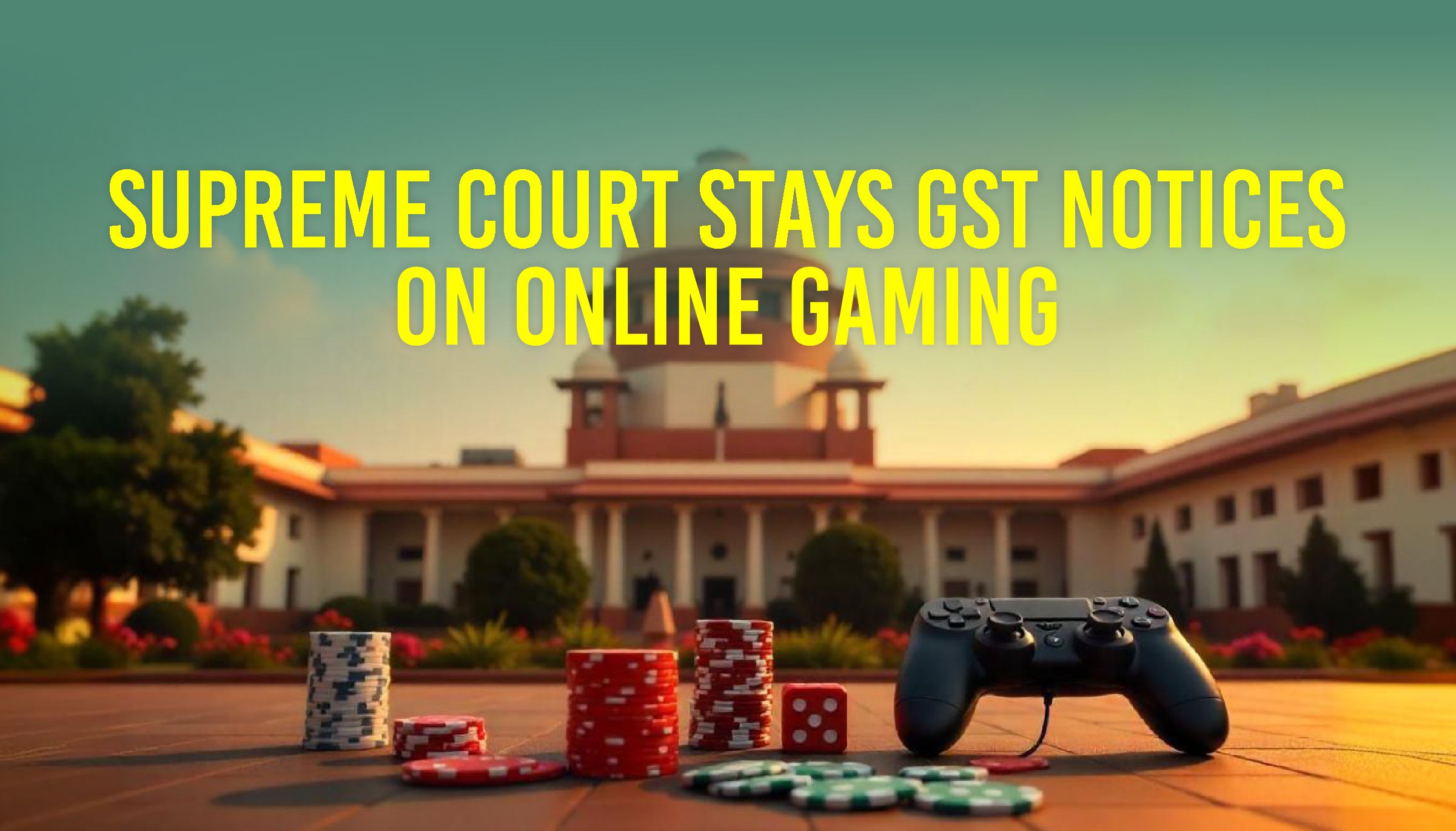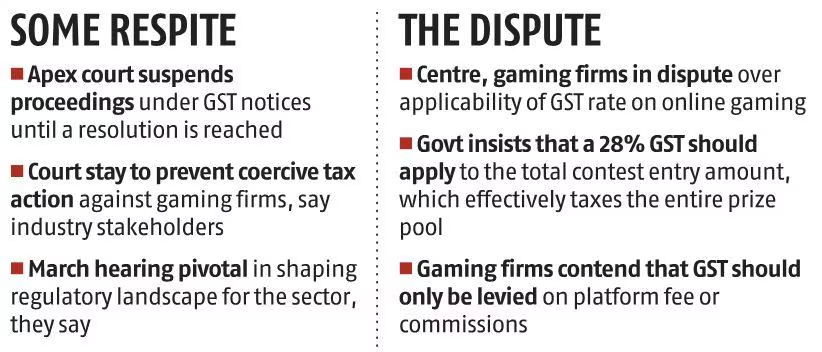SC Stays GST Notices on Online Gaming Dispute

In a significant relief for India’s burgeoning online gaming industry, the Supreme Court (SC) on Friday stayed the recovery of Rs 1.12 trillion in GST demands raised through show-cause notices against gaming companies. The court also ordered that further proceedings be paused until a definitive legal resolution is achieved. Additionally, it consolidated all related cases, with the next hearing scheduled for March 18, 2025.
The gaming companies moved the court to challenge the notices, citing the contentious nature of the tax demands. They argued that recovery actions by tax authorities would adversely affect their operations and the sector’s growth. This ruling is seen as a temporary but crucial reprieve for the industry, providing breathing space while legal arguments on the core issue—what constitutes the GST liability for online gaming—are deliberated.
The Chronology of the GST Controversy
The debate around GST applicability to online gaming has been simmering for years, with significant milestones shaping its evolution:
Pre-July 2023 Regime: Prior to the GST Council’s decision in July 2023, online gaming was treated as a service. Thereby being taxed at standard 18%. The tax was levied on the platform’s revenue—specifically, the fees or commissions they earned from users.
50th GST Council Meeting: In July 2023, the Council reclassified online gaming under the 28% GST slab, equating it with betting and gambling. This decision applied to both skill-based and chance-based games and came into effect from October 1, 2023.
Post-October 2023 Developments: With the amendment, GST was to be charged on the full contest entry amount. This meant that that entire prize pool will be taxed. The shift from 18% on revenue to 28% on deposits created massive financial implications for the industry.
December 2023 Notices: The government disclosed in the Rajya Sabha that it had issued 71 show-cause notices to online gaming companies, alleging tax evasion amounting to Rs 1.12 trillion for the financial years 2022-23 and the first seven months of 2023-24.
This reclassification led to a contentious debate, as gaming companies argued that the distinction between skill-based games and chance-based games warranted separate treatment. They maintained that skill-based games, which involve player expertise and strategy, should not be equated with gambling.
The Impact of the 28% GST
The imposition of 28% GST has had widespread ramifications for the industry:
Financial Burden: Taxing the entire contest entry amount has significantly increased tax liabilities, affecting profitability and discouraging users from participating in such games.
Investor Sentiment: The higher tax rate has raised concerns among investors, leading to a dip in foreign institutional investments in gaming companies.
Growth Challenges: The industry was projected to grow exponentially. But now, faces a potential slowdown due to regulatory uncertainty and higher operational costs.
Skill vs. Chance Debate: The distinction between skill-based and chance-based games remains a key issue. Industry stakeholders argue that skill-based games are fundamentally different from gambling and should attract a lower tax rate of 18%, applicable to services.
Supreme Court Stay: What It Means
The SC’s decision to stay the notices is a significant relief for gaming companies and ensures that no recovery actions can take place until a final verdict is delivered. Here’s what it entails:
Temporary Protection: The stay prevents coercive action by tax authorities, allowing companies to continue operations without immediate financial strain.
Legal Clarity: By consolidating cases and setting a timeline for the next hearing, the court has created a framework for a detailed examination of the issues, including the applicability of 18% or 28% GST and whether the tax should apply to deposits or platform fees.
Safeguarding Revenue Authorities: The stay ensures that the tax demands do not become time-barred during litigation, preserving the government’s ability to recover dues if the final verdict supports the notices.
Industry Confidence: The ruling has boosted confidence in the gaming sector. Industry leaders believe that a fair resolution could unlock the sector’s growth potential, attracting investments and creating jobs.

Way Forward for Online Gaming Industry
The Supreme Court’s intervention has provided much-needed respite to the online gaming industry, which is grappling with uncertainty surrounding GST regulations. However, the broader issue remains unresolved—whether skill-based games should be taxed differently from gambling and betting.
This case underscores the need for clarity and consistency in the taxation framework for emerging sectors. A definitive legal resolution is critical not only for the gaming industry’s growth but also for safeguarding the government’s revenue interests. With the next hearing set for March 2025, stakeholders across the spectrum await a judgment that balances innovation, fairness, and compliance.
The sooner this clarity arrives, the better it will be for India’s burgeoning digital economy.
